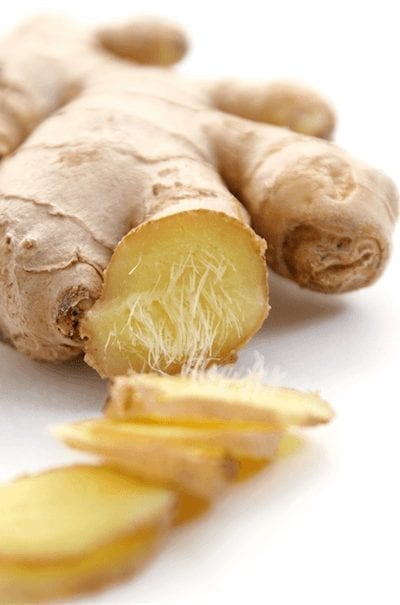Everyone has allergies from time to time, but imagine your life if you had a stuffy or runny nose, headache, or sinus pressure every day? There is something natural that can not only reduce these symptoms, but make you feel more energized, boost your immune system, and can even improve your skin and hair health: eating foods that fight inflammation. Inflammation is the root cause of chronic sinus problems, as well as allergies and hay fever.
However, traditional Chinese medicine has long held the belief that the foods you eat and the lifestyle you lead can impact your health as much as any medical regimen.
A nutritious diet can not only decrease inflammation in your system, but also boost your immunity to bacteria that can lead to sinus infections. Also, there are foods that can unclog nasal passages and ease your breathing. Just as we would put the right kind of gas into a car to ensure it runs well, the food you put in your body can be tailored to your needs to help you feel your best.
6 Foods to Avoid if You’re Suffering from Inflammation
Processed Sugar
Processed Sugar, also labeled as fructose or sucrose, are packed into favorite desserts such as pastries and chocolate bars, as well as sodas and fruit juices.
Foods High In Saturated Fat
Foods high in saturated fat, such as pizza and cheese, as well as meat products, pasta dishes, full-fat dairy products and grain-based desserts can trigger adipose, or fat tissue, inflammation.
MSG
MSG, or mono-sodium glutamate, is present in fast foods, canned/processed soup mixes, salad dressing, Asian foods and soy sauce, as well as deli meats.
Excess Omega-6 Fatty Acids
Excess Omega-6 Fatty acids, not to be confused with omega-3 fatty acids, are found in oils such as “corn, safflower, sunflower, grapeseed, soy, peanut, and vegetable; mayonnaise; and many salad dressings,” according to the Arthritis Foundation.
Gluten and Casein
Gluten and Casein can be found in foods like wheat, rye, barley, and dairy products.
Refined Carbohydrates
Refined carbohydrates, such as instant mashed potatoes, and processed white flour products as well as cereals can be the culprits behind your inflammation.
If you think a career in holistic medicine is something you would like to pursue, contact us and speak to an admissions representative to get started on your new journey!
11 Foods to Help Fight Sinus Inflammation
Fish
Fish such as wild salmon, cod, and sardines are high in omega 3 fatty acids.
Tart Cherries
Did you know these little guys can reduces inflammation ten times better than aspirin? They can also reduce your risk for heart disease.
Turmeric Spice
Tumeric Spice, which is often used in Thai and Indian food, contains curcumin, which actively reduces inflammation.
Avocados
Avocados are high in omega 3 fatty acids and can reduce immune dysfunction.
Beans
Beans, such as mung, pinto, and kidney, are also high in omega 3 fatty acids.
Red Bell Peppers
Red Bell peppers are rich in Vitamin C and act as an antioxidant.
Green Vegetables
Green vegetables such as broccoli, asparagus, leafy greens, and bean sprouts contain high levels of vitamin C and calcium, helping to counteract histamine, “the substance that can contribute to inflammation, runny nose, sneezing, and other related symptoms.”
Citrus fruits
Citrus fruits such as oranges, grapefruit, and berries are also high in vitamin C.
Other Fruits
Other fruits such as tomatoes, apples and pears are rich in Quercetin, a natural antihistamine.
Green Tea
Green tea and drinking more fluids can help to alleviate any headaches that can result from dehydration caused by constant sneezing and blowing your nose.
Spices
Spices like ginger, basil, and cayenne pepper are helpful in thinning mucus and help to stimulate the sinuses and aid in air circulation. Ginger, chili peppers and black pepper contain [6]-Gingerol, a dietary polyphenol that has anti-inflammatory effects.
The common thread between all the foods on the list above is that each contains antioxidants and or omega 3s. A part of the world that naturally gravitates to an omega-3 rich diet is Greece. A Mediterranean diet is very high in antioxidants, and studies have shown that people in Greece have very few reported allergies. Think like the Greeks! Eat fresh salads with tomatoes, onions, olives, and plenty of fresh fish.
By incorporating these foods into your daily diet, you will not only be drastically improving your sinuses, you will be reducing inflammation all over your body. This will boost your overall health—improving heart health, joint pain, headaches, and even acne and skin conditions. Enjoy!
Sources:
About Sinusitis
https://www.hopkinsmedicine.org/health/conditions-and-diseases/sinusitis
https://www.health.harvard.edu/diseases-and-conditions/sinusitis
Top 10 Foods to Reduce Inflammation
http://bodyecology.com/articles/top_ten_foods_that_prevent_inflammation.php
Best Diet for Nasal Allergies
http://www.webmd.com/allergies/features/allergies-diet
8 Food Ingredients That Can Cause Inflammation
7 Natural Remedies for Pain and Pressure from Sinus Infections
https://www.everydayhealth.com/sinus-health-guide/natural-remedies-for-sinus-pain.aspx
Featured Posts:

